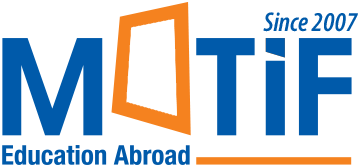Bachelor of Information Technology

- Overall 6.0 not less than 5.5
The Course Overview – can be used to view the course structure and sequence in which subjects should be studied. All subjects named (LISTED) in the Course Overviews are core subjects and must be studied to satisfy the requirements of the particular award.
The first two trimesters of the Bachelor of Information Technology provide the underpinning knowledge and skills needed to successfully attempt the higher level subjects in the remaining trimesters.
The subjects in shaded boxes must be studied in the order they are presented as they provide pre-requisite knowledge for other subjects. The remaining subjects (core and elective) have a recommended trimester, but may be studied in other available trimester slots to suit individual student preferences, provided pre-requisites have been completed.
Students may choose any elective subjects from the list following the Course Overview, provided the subject is offered in the trimester they wish to study it and they have met the relevant pre-requisites.
Bachelor of Information Technology
The Bachelor of Information Technology offers a broad understanding of the concepts and practices of information technology and information systems, supported by related areas in data science and technology management. The course focuses on preparing students for the challenges of IT careers in the modern business environment, specifically preparing students for roles in programming, software development, network administration, web development, business analysis, database administration and systems administration. It aims to equip students with the decision-making and critical analysis skills required in systems and data management, as well as a variety of functional areas in business development and project management. There is a particular emphasis on the development of professional and personal skills to underpin success in business. This prepares students to apply their professional knowledge and skills in Information and Communication Technology (ICT) within an industry of their choice.
Course Learning Outcomes
1. Demonstrate current, comprehensive, coherent and connected knowledge.
-
- In depth knowledge of the principles and concepts of information and communications technology
- Capacity to make links between theory and practice and apply knowledge to real world business problems
2. Command the skills for adaptable, lifelong learning to grow in knowledge and skill throughout their lives.
-
- Communicate effectively in varied modes and contexts and transfer knowledge and skills to others
- Use critical thinking and creative skills to analyse and synthesise information and evaluate approaches to new problems
- Apply problem solving skills to apply logical and creative thinking to solve problems and evaluate solutions
- Access, evaluate and use information professionally
- Develop social interaction skills to work effectively in teams, inspire their colleagues and manage responsibly with positive results.
3. Display initiative and responsibility in their professional activities and exercise judgement in planning, problem solving and decision-making
-
- Apply and use current techniques, skills and tools necessary for computing practice
- Apply knowledge of best practices and standards and their application
- Create and manage an effective project plan
4. Attain an appreciation of diversity in an evolving world.
-
- Value ethical conduct and professionalism
- Appreciate the experiences and achievements of other cultures
- Communicate ethically and effectively in multicultural contexts (including Indigenous Australia)
- Explain the legal, ethical, social and cultural issues that affect the use, design, and implementation of information systems.
